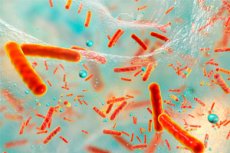
09 May 2024, 11:05
一种新药可以通过恢复患者血管的健康来预防与败血症相关的器官衰竭和死亡。
昆士兰大学和昆士兰儿童医院的研究人员在小鼠身上成功测试了一类新型药物。
昆士兰大学儿科重症监护室和医院的马克·库尔萨德博士表示,使用人体血液样本进行的临床前试验结果也很有希望。
脓毒症患者器官衰竭的原因是血管内皮细胞变得具有通透性,导致液体异常转移并最终切断血液供应。
我们确定了因发烧和疑似感染而入院的儿童的血管损伤标志物,以及细胞中与此相关的蛋白质信号通路。
我们研发的药物针对这些途径的相互作用来恢复血管内皮细胞的功能,”马克·库尔萨德博士说。
昆士兰大学生物医学科学学院的特伦特·伍德拉夫教授表示,新方法针对的是器官衰竭的根本原因,而之前失败的尝试主要集中在免疫反应上。
伍德拉夫教授说:“败血症被称为‘制药公司的坟墓’,因为尽管投入了大量资源并进行了 100 多次临床试验,但仍然没有有效的治疗方法可以改变宿主的反应。”
“针对血管内皮的药物可能减少败血症、器官损伤和死亡造成的损害。”
库尔萨德博士表示,临床前试验的结果令研究人员感到鼓舞。
他说:“我们对 91 名因发烧和疑似感染而入院的儿童的血液样本进行了药物测试,并注意到生物标志物的变化与我们在小鼠研究中看到的变化类似。”
“这表明该药物对人类可能也有效。
还需要进一步研究,包括在其他动物模型中研究该药物及其在临床试验中的有效性。”
该研究发表在《科学转化医学》杂志上。

